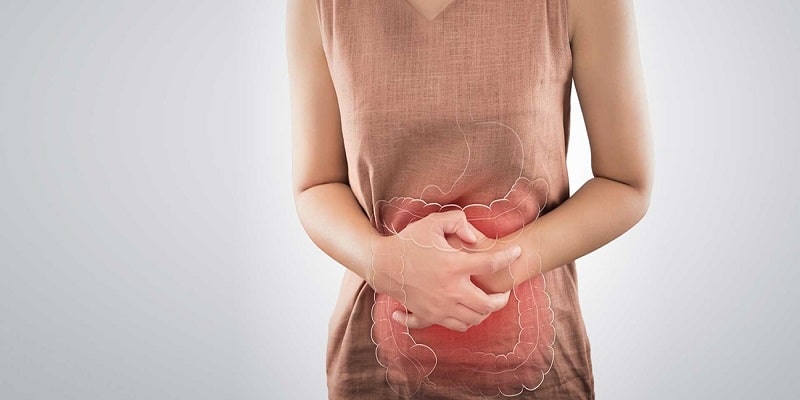What is constipation?
Constipation is one of the most common digestive problems in the world. It is defined as having hard, dry bowel movements or passing stool fewer than three times a week.
Each person’s bowel habits are different. Some people go three times a day, while others go three times a week.
However, you may be constipated if you experience the following symptoms:
* fewer than three bowel movements a week
* passing lumpy, hard, or dry stools
* straining or pain during bowel movements
* a feeling of fullness, even after having a bowel movement
The National Institute of Diabetes and Digestive and Kidney Diseases (NIDDK) recommends seeking medical advice if symptoms don’t go away or if you notice the following:
* bleeding from the rectum
* blood in your stool
* persistent abdominal pain
* pain in the lower back
* a feeling that gas is trapped
* vomiting
* fever
* unexplained weight loss
* a sudden change in bowel movements
Causes
Your colon’s main job is to absorb water from residual food as it’s passing through your digestive system. It then creates stool (waste).
The colon’s muscles eventually propel the waste out through the rectum to be eliminated. If stool remains in the colon too long, it can become hard and difficult to pass.
Poor diet frequently causes constipation. Dietary fiber and adequate water intake are necessary to help keep stools soft.
Fiber-rich foods are usually plant-based. Fiber comes in soluble and insoluble forms. Soluble fiber can dissolve in water and creates a soft, gel-like material as it passes through the digestive system.
Insoluble fiber retains most of its structure as it goes through the digestive system. Both forms of fiber join with stool, increasing its weight and size while also softening it. This makes it easier to pass through the rectum.
Stress, changes in routine, and conditions that slow muscle contractions of the colon or delay your urge to go may also lead to constipation.
Common causes of constipation include:
* low fiber diet, particularly diets high in meat, milk, or cheese
* dehydration
* low exercise levels
* delaying the impulse to have a bowel movement
* travel or other changes in routine
* medications, including certain antacids, pain medications, diuretics, and some treatments for Parkinson’s disease
* pregnancy
* older age (constipation affects around one-third of people ages 60 and over)
How to prevent constipation
Tips for preventing constipation are similar to those for relieving it.
Try the following:
* Eat plenty of fruits, vegetables, and whole grains.
* Eat high fiber foods and ask a healthcare professional about using fiber supplements.
* Include prunes or bran cereal in your diet.
* Drink plenty of water.
* Avoid alcohol and caffeine, as they can lead to dehydration.
* Get regular exercise.
* Consider adding probiotics to your diet, like those found in yogurt and kefir with live active cultures.
* Train your muscles to have a bowel movement at the same time each day.
Some studies have shown that adding probiotics can be helpful for people with chronic constipation. If you add fiber supplements, remember to drink plenty of fluids. Fluids help fiber work more efficiently.
Relief and treatment
Changing your diet and increasing your physical activity level are the easiest and fastest ways to treat and prevent constipation.
You can try the following techniques as well:
* Every day, drink 1.5 to 2 quarts of unsweetened fluids, like water, to hydrate the body.
* Limit consumption of alcohol and caffeinated drinks, which cause dehydration.
* Add fiber-rich foods to your diet, such as raw fruits and vegetables, whole grains, beans, prunes, or bran cereal. Your daily intake of fiber should be between 20 and 35 grams.
* Cut down on low fiber foods, such as meat, milk, cheese, and processed foods.
* Aim for about 150 minutes of moderate exercise every week, with a goal of 30 minutes per day at least five times per week. Try walking, swimming, or biking.
* If you feel the urge to have a bowel movement, don’t delay. The longer you wait, the harder your stool can become.
* Ask your doctor about bowel training to get your body used to passing stool 15 to 45 minutes after breakfast each day.
* Raise your knees by putting your feet on a footstool when having a bowel movement.
* When using the bathroom, allow yourself plenty of time, and try to relax your muscles.
* Use laxatives sparingly. A healthcare professional may prescribe laxatives or enemas for a short period of time to help soften your stools. Never use laxatives for more than 2 weeks without talking with a healthcare professional. Your body can develop a dependence on them.
* Ask a healthcare professional if any of your medications might be causing constipation.



